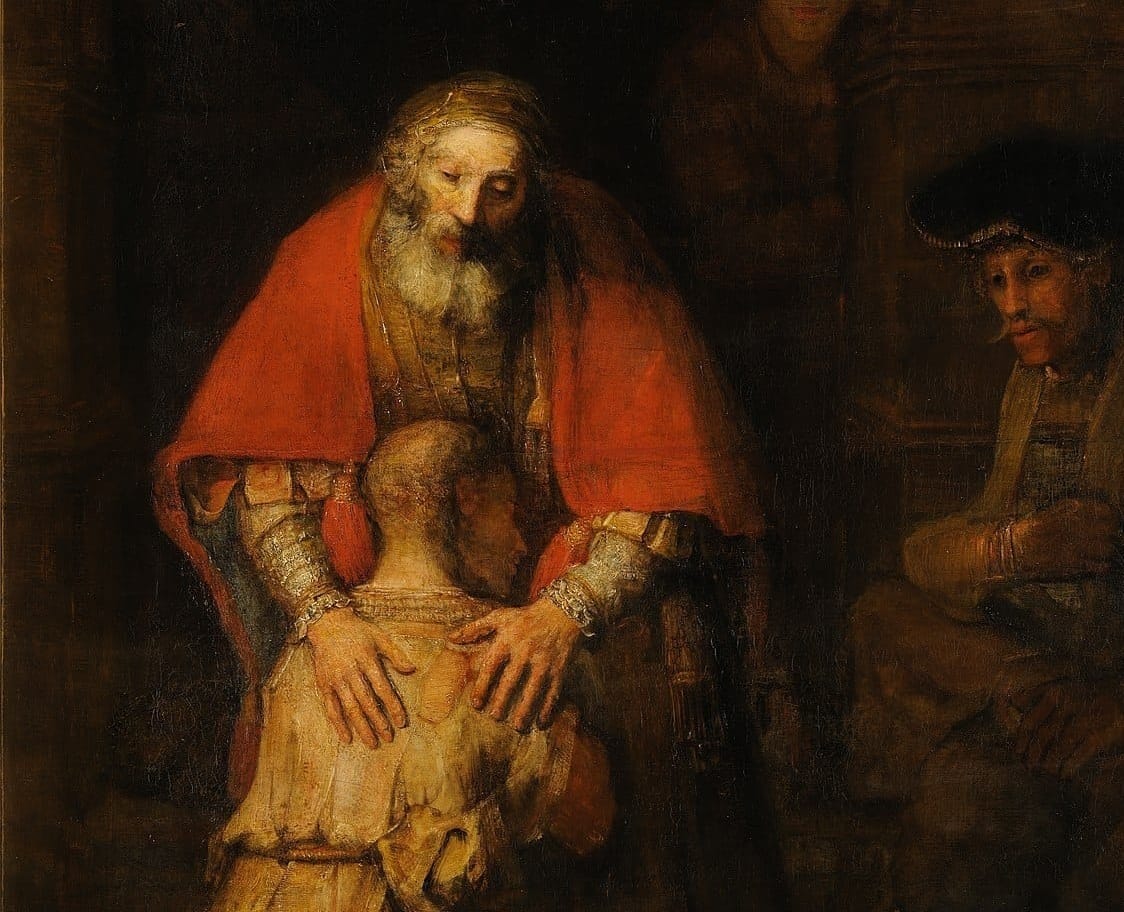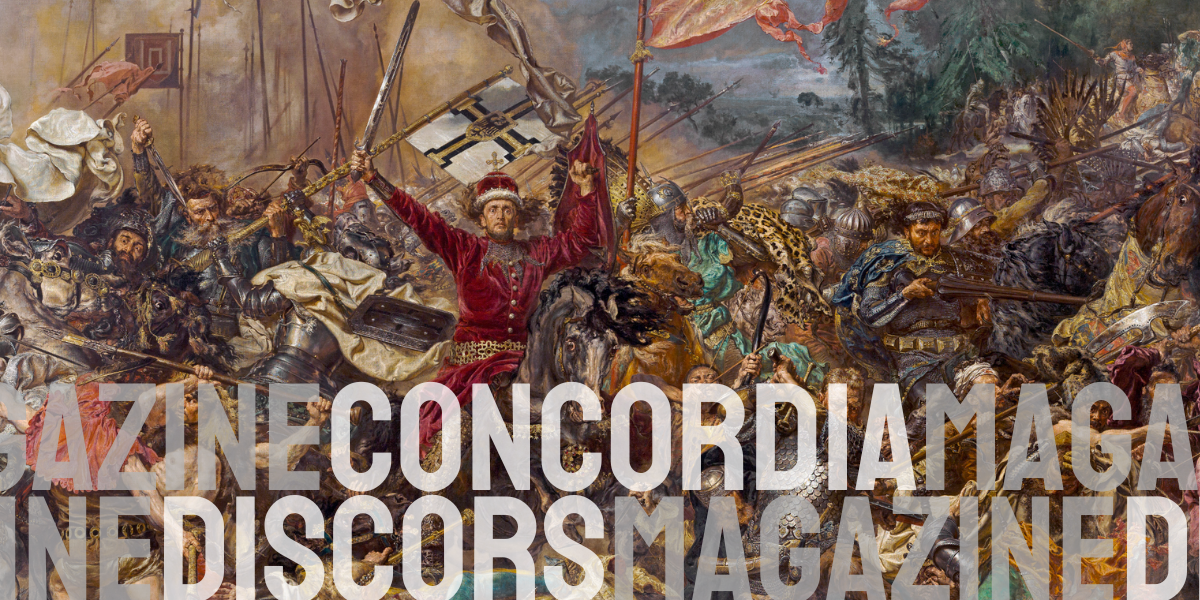The Hardest Freedom: Forgiveness After Hurt
Forgiveness is no easy grace—it is the hardest freedom, wrested from pain itself. It asks the unimaginable: that hurt might yield to mercy. Yet time and again, from the crucifixion to South Africa’s rebirth, it has made the impossible possible.

When Erika Kirk stood before a grieving audience only days after her husband’s assassination, she did not call for vengeance. She did not retreat into silence. Instead, with a voice both trembling and unyielding, she declared that she forgave the man who had pulled the trigger.
It was a statement that shocked, even unsettled. Forgiveness on such a scale is never natural. It defies instinct, contradicts justice, and unsettles our sense of moral order. And yet, in that thunderous moment, Kirk embodied something at once deeply human and deeply transcendent: the possibility of turning hurt into a form of grace.
Forgiveness is one of humanity’s oldest, most difficult, and most radical ideas. It is also one of the least understood. To forgive is not to excuse, condone, or forget. It is not amnesia, indulgence, or weakness. At its core, forgiveness is an act of transformation: an injured party choosing, in freedom, to alter their stance toward the offender—releasing resentment, relinquishing the claim to revenge, and thereby creating the possibility of a future not wholly defined by the past. Christianity dares to command precisely this unthinkable task: to forgive not once, but without limit; not only friends, but enemies; not only the excusable, but the inexcusable.
Christianity dares to command precisely this unthinkable task: to forgive not once, but without limit; not only friends, but enemies; not only the excusable, but the inexcusable.
Philosophers have long grappled with forgiveness’s meaning and limits. Hannah Arendt, in The Human Condition (1958), argued that forgiveness is the only power that redeems human beings from the irreversibility of their deeds: “Without being forgiven, released from the consequences of what we have done, our capacity to act would… be confined to one single deed from which we could never recover.” Forgiveness, she insisted, is what allows us to “begin anew.” Yet Arendt also knew its limits. In Eichmann in Jerusalem (1963), she contended that the Holocaust represented crimes “beyond both punishment and forgiveness.” Some evils rupture the human world so completely that no act of pardon can repair them. Nietzsche took the opposite tack. In On the Genealogy of Morals (1887), he mocked forgiveness as “slave morality,” the creation of the weak to mask their impotence. For him, true nobility would be to forget injuries altogether, not to parade forgiveness as virtue.
Modern thinkers split along similar lines. Charles Griswold insists forgiveness must be conditional—earned by remorse, apology, and amendment (Forgiveness: A Philosophical Exploration, 2007). For Griswold, forgiveness is a moral dialogue: the wrongdoer must acknowledge responsibility and demonstrate change, and only then can the victim release resentment without trivializing the wrong. Jacques Derrida, by contrast, argued in On Forgiveness (2001) that true forgiveness must forgive the unforgivable; otherwise, it is only negotiation, an economy of exchange. If forgiveness depends on the offender’s apology, it risks becoming indistinguishable from reconciliation or justice. For Derrida, forgiveness is real only when it is excessive, gratuitous, even impossible—when it breaks the logic of reciprocity altogether. Between Griswold’s insistence on justice and Derrida’s vision of grace lies the enduring paradox: is forgiveness a contract to be earned, or a gift to be given? Do we safeguard the moral order by making forgiveness conditional, or transcend it by making forgiveness unconditional? The answer shapes not only personal ethics but also how communities heal after wrongdoing.
Between Griswold’s insistence on justice and Derrida’s vision of grace lies the enduring paradox: is forgiveness a contract to be earned, or a gift to be given?
Religion gives forgiveness its deepest weight.
In Judaism, forgiveness is bound to teshuvah—repentance. The High Holy Days emphasize that one cannot ask God’s pardon for wrongs against another until one has sought reconciliation with the injured party. Forgiveness is relational repair, not unilateral absolution. In Islam, forgiveness reflects God’s very nature. The Qur’an names Allah Al-Ghafoor (the All-Forgiving) and urges believers to emulate divine mercy: “Let them pardon and forgive. Do you not love to be forgiven by Allah?” (24:22). The Prophet Muhammad’s pardon of his enemies at the conquest of Mecca remains a model of magnanimity: to forgive when one has the power to punish. Buddhism and Hinduism also elevate forgiveness, though differently. In Buddhism, forgiveness is liberation from resentment; in Hinduism, kshama is a divine quality: “By forgiveness the universe is held together” (Mahabharata).
Christianity radicalizes the ethic of forgiveness.
Christianity radicalizes the ethic. Jesus does not merely recommend forgiveness as a wise practice; he makes it a command. When Peter asked if forgiving a brother seven times was sufficient—a number already seen as generous—Jesus replied, “I do not say to you seven times, but seventy times seven” (Matthew 18:22). The figure is not arithmetic but symbolic: forgiveness must be without limit. In the Lord’s Prayer, Christians are taught to entreat God, “Forgive us our trespasses, as we forgive those who trespass against us” (Matthew 6:12). Here the act of forgiving others is tied directly to the believer’s own reception of divine mercy. On the cross, Jesus models this boundlessness with his plea for his executioners: “Father, forgive them, for they know not what they do” (Luke 23:34). Forgiveness in Christianity is therefore not earned but given, rooted not in the offender’s worthiness but in the believer’s own prior experience of grace.
The Church Fathers underscored this radical inversion of ordinary justice. Tertullian urged Christians to practice “the patience of God,” forgiving even when insulted or persecuted (De Patientia). Augustine emphasized that forgiveness flows from humility: having been forgiven by God, the believer cannot cling to prideful resentment against others (Enchiridion, ch. 74). Medieval theology further systematized the point: Thomas Aquinas described forgiveness as an act of charity that imitates God’s own goodness (Summa Theologiae, II-II, Q.108). In this tradition, to forgive is not merely an ethical choice but a theological imitation of the divine. Modern writers echo the same paradox. C.S. Lewis expressed it succinctly: “To be a Christian means to forgive the inexcusable, because God has forgiven the inexcusable in you” (The Weight of Glory, 1949). Forgiveness is not sentimental but scandalous: it dares to break the calculus of desert and reciprocity. It asks the believer to act not on the logic of justice but on the logic of grace.
Few moments made this visible more than Pope John Paul II’s prison visit in December 1983. Two years earlier, Mehmet Ali Ağca had shot him in St. Peter’s Square, nearly killing him. After recovering, John Paul insisted on meeting his would-be assassin. In the Rebibbia prison cell, the Pope clasped Ağca’s hand and spoke with him privately for twenty minutes. The official Vatican communiqué described it as “a meeting of two men,” but the image told more: the pontiff leaning forward, the assassin listening, their hands joined. John Paul later reflected that he had “forgiven from the first moment” but wanted to make it visible, as a testimony to the power of mercy over violence. The photograph remains one of the most unsettling and luminous icons of the late twentieth century: a Pope embodying, in flesh and gesture, the command of Christ to forgive even one’s enemies.
This ethic has inspired other dramatic gestures. In 2006, when a gunman murdered five schoolgirls in an Amish community in Pennsylvania, the victims’ families publicly forgave him and even visited his widow to console her. Their testimony of mercy bewildered outsiders but reflected the same radical logic: forgiveness as an obligation of grace, extended even when the offender cannot repent. Such examples reveal why Christian forgiveness continues to astonish—because it overturns instinct, mocks revenge, and refuses to keep score.
Forgiveness is not confined to private life; it has reshaped nations.
In the 1990s, South Africa’s Truth and Reconciliation Commission sought to heal the wounds of apartheid. Victims testified to horrors; perpetrators confessed; amnesty was granted in exchange for truth. Archbishop Desmond Tutu declared, “Without forgiveness, there is no future.” Amy Biehl’s parents, whose daughter was murdered in a racial mob attack, went further: they forgave her killers and later employed them in their foundation. Their gesture was not naïve but the recognition that vengeance would doom South Africa’s fragile rebirth. Rwanda, after the 1994 genocide, faced a similar reckoning. In gacaca courts, neighbors confessed crimes before survivors. Sometimes forgiveness followed, sometimes not. A woman who vowed never to forgive the man who killed her sister found herself moved after hearing his remorse: “I could forgive him. I saw his remorse.” These stories reveal the fragility of forgiveness, but also its necessity in fractured societies.
And there was Nelson Mandela. Emerging from twenty-seven years of prison, he could have demanded revenge. Instead, he invited his former jailers to sit beside him at his inauguration. His act of political forgiveness was not sentimental—it was statesmanship. He knew vengeance would destroy the future of the democracy he sought to build.
Psychology adds empirical weight. Holding onto resentment floods the body with cortisol, weakens immunity, raises blood pressure, and fuels depression. “Carrying a grudge,” noted Dr. Karen Swartz of Johns Hopkins, “is like carrying a physical burden.”
Psychology adds empirical weight. Holding onto resentment floods the body with cortisol, weakens immunity, raises blood pressure, and fuels depression.
Conversely, studies show forgiveness lowers stress, improves cardiovascular health, and boosts mental well-being. Robert Enright’s research demonstrates that forgiveness training can reduce anger and depression even in victims of violence. In Northern Ireland, survivors of sectarian conflict who practiced forgiveness reported greater peace and agency. Forgiveness is not just virtue; it is medicine.
Yet forgiveness is not everything. It is not condoning, excusing, or forgetting. It does not erase justice; it separates justice from vengeance. A murderer may be imprisoned, and rightly so, while still being forgiven by the victim’s family. Forgiveness can also be corrupted. Victims of abuse are sometimes pressured to forgive prematurely, silencing their claims. Dictators have cloaked amnesties in the language of reconciliation. Martha Minow warns in Between Vengeance and Forgiveness (1998) that true forgiveness must remain voluntary. Anything else risks becoming coercion.
Forgiveness can also be corrupted. Victims of abuse are sometimes pressured to forgive prematurely, silencing their claims. Dictators have cloaked amnesties in the language of reconciliation.
We live in an age of grievance. Injuries, both real and imagined, are hoarded, broadcast, weaponized. The instinct is always to repay. Forgiveness resists this instinct. It is countercultural. It refuses to let resentment have the last word. This does not mean every wrong must be forgiven. Arendt was right: some crimes may lie beyond it. But in most of life—in families, friendships, civic life, even nations—there is no future without it. Without forgiveness, relationships calcify, politics harden, societies implode. With it, possibilities reopen.
Forgiveness liberates the victim, restores dignity to the offender when possible, and breaks cycles of harm. It is, in the deepest sense, the hardest freedom: the freedom to relinquish vengeance when vengeance would be justified.
Forgiveness liberates the victim, restores dignity to the offender when possible, and breaks cycles of harm. It is, in the deepest sense, the hardest freedom: the freedom to relinquish vengeance when vengeance would be justified. Erika Kirk’s declaration was not weakness. It was strength distilled. It was the refusal to let hatred rule. The alchemy of forgiveness is this: to take the raw metal of injury and, through the fire of conscience and courage, forge a new alloy—stronger, more enduring, more humane. Out of hurt, a new beginning. Out of resentment, release. Out of discord, the hardest freedom. [GC]
The alchemy of forgiveness is this: to take the raw metal of injury and, through the fire of conscience and courage, forge a new alloy—stronger, more enduring, more humane.







